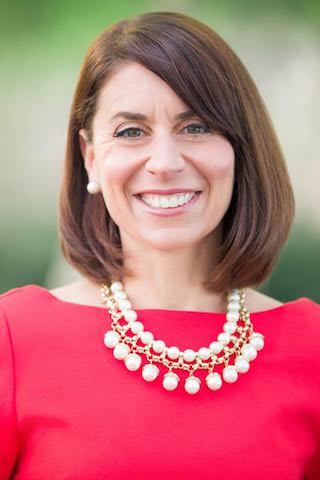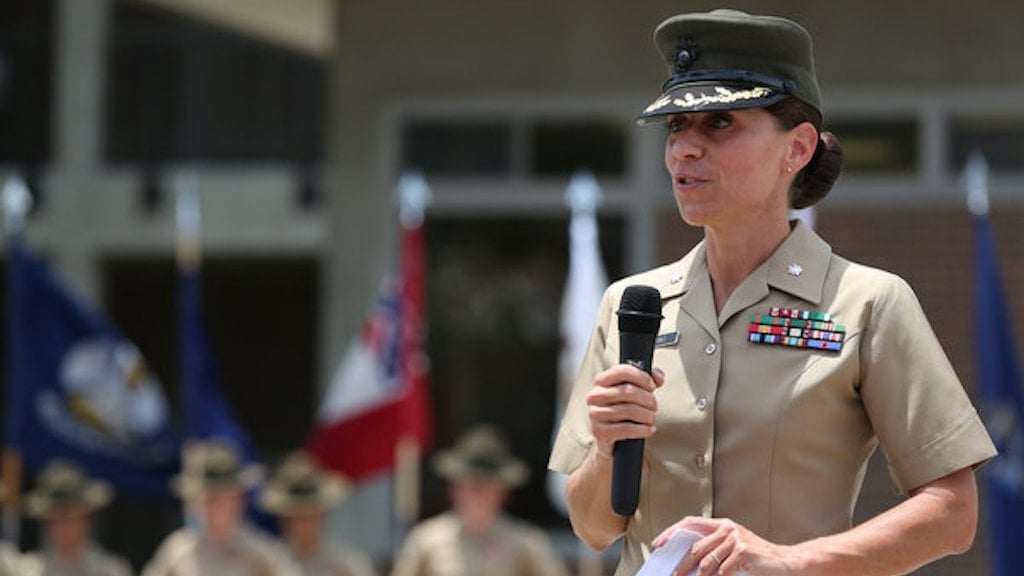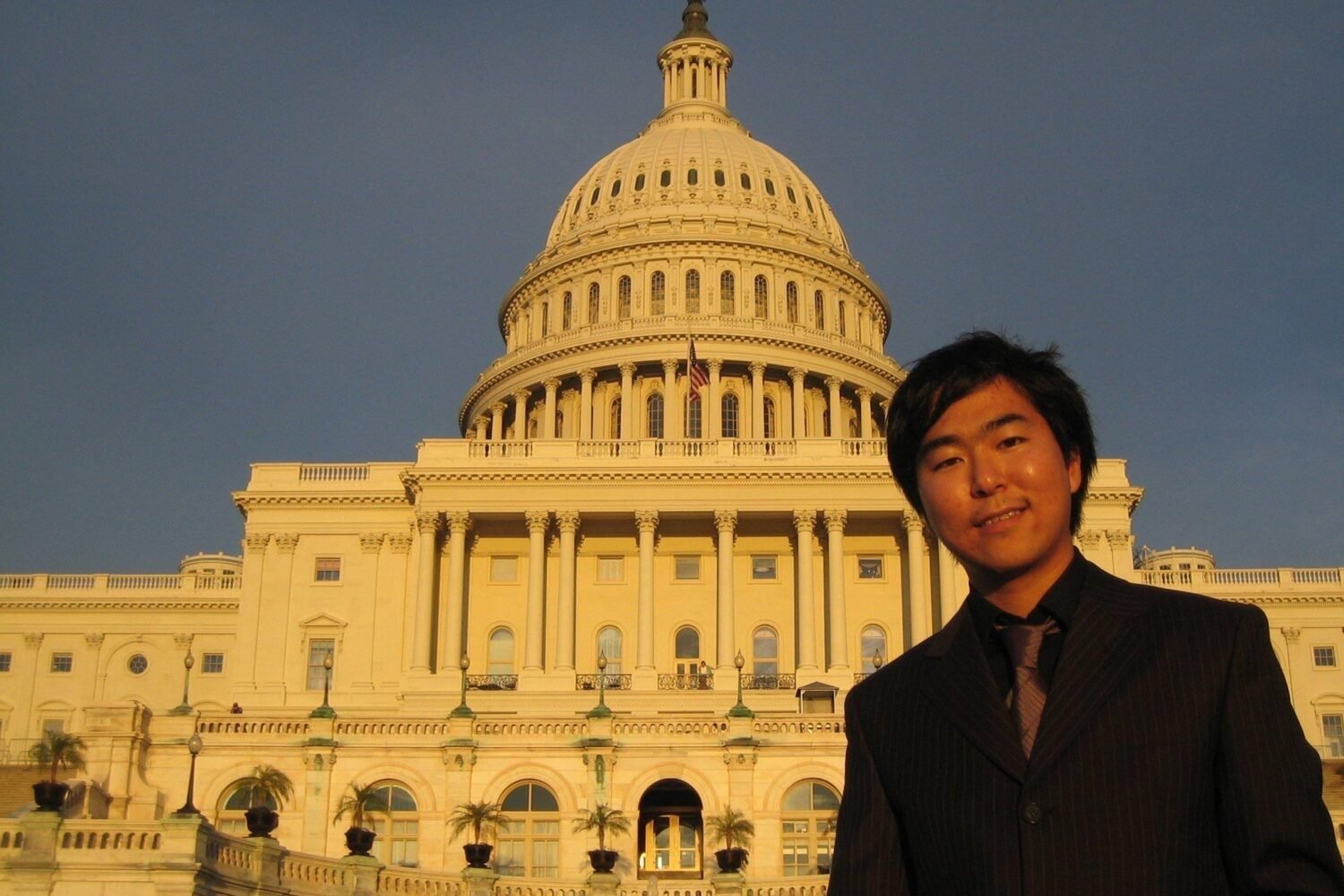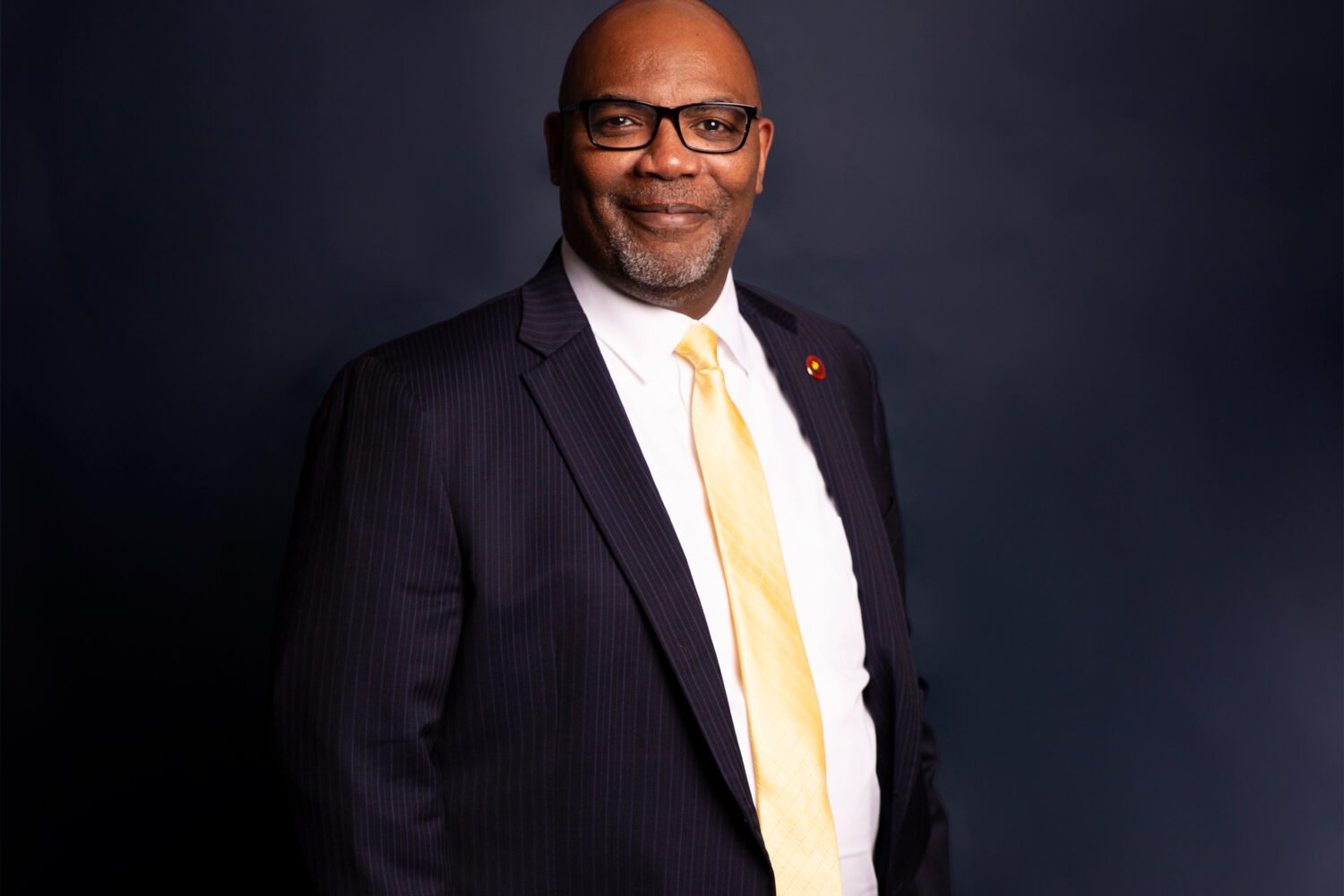In 2015, Kate Germano became the first woman to be fired from the Marine Corps Fourth Recruit Training Battalion. Why? After one year, the 1,000 women under her command equaled their male counterparts in shooting qualifications, injuries and behavioral issues had decreased, and their quality of life had improved, reasons she maintains led to her firing.
Her removal sparked controversy widely covered by the press, partly due to an article she penned before her firing, “When Did It Become an Insult to Train Like a Girl?” that was pulled from being published in the Marine Corps Gazette and later published in full in the New York Times. The article calls out what she saw as institutional patterns that ensured female recruits weren’t trained as tough as their male counterparts, leading them to lower performance and fewer opportunities.
We talked to Germano, who lives in National Harbor, about her new book, Fight Like A Girl: The Truth Behind How Female Marines Are Trained and what she considers systemic gender bias in the Marines (which remains the only branch to separate men from women during training), its particular resonance in light of the Me Too movement, and what she’d say to Trump.
Why did you decide to write this book?
The book came out of a call I got out of the blue after the New York Times piece on my firing ran. I never considered writing it until an agent called me. I thought about it and I decided I was going to partner with Kelly (Kennedy, co-author and veteran) and that we would use it as a way to not only talk about problems that women have in the military—and this was way ahead of the Me Too movement—because the root causes that we have with military and gender are the same across industries. Sometimes women are put in a box and left out of key conversations.
What are those key conversations?
How to develop male allies, because we can’t solve these problems on our own. And coming up with solutions. Having military women at the table—for lack of a better term—really will help people understand that the root causes are the same. When you have a power structure—because our numbers are so small in key positions—we lack the authority to change organizations.
You mention the Me Too movement early on in the book. Do you feel that this movement has changed how the book will be received?
My hope is that it reaches a wider audience. We’re trying to bridge the gap between the civilian sector and the military sector. What I recognized right up front, Kelly and I had to work with writing so that people with no military experience would understand. What I find is, for whatever reason, people are really deferential to the military, and sometimes that’s not healthy. So I think the folks in the publishing world didn’t want to offend me or Kelly. There was this “off” feeling that we were dancing around stuff.
How so?
You always hear people say “thank you for your service.” The reality is we don’t want to be thanked for our service. And in fact, some of us shouldn’t be thanked. We volunteer for our jobs. We don’t deserve kudos just because we signed up. It really devalues the legitimate valor of our actual heroes.
Do you feel that it’s different because you’re female?
This is a problem many military women face. We join the military because we want to be part of something bigger than ourselves. Then we stick out like sore thumbs. Because there’s so few of us, we don’t feel like part of the group. Then we go from sticking out because there’s so few us to blending in with the regular world after we leave the military. We’re invisible. It’s contributing to mental health issues. I want to highlight that the women veteran suicide rate is growing exponentially. It’s because of that invisibility facet.

So, how does a civilian walk the fine line between not thanking you but also noticing you?
We all have hidden inner biases that we don’t even know exist because of how we’re brought up. I think just taking one second to pause, and if you see one woman applying to a program or a job, just asking them if they served would blow their minds. If we ask men in those situations, “Hey, did you serve?” then we should be willing to ask women the very same question. It happens a lot when veterans go to get medical care, apply to college, apply for loans, apply for jobs.
Can you speak to what it’s like serving under different administrations?
Way back in the beginning of my career, Bill Clinton was president. Fast forward to the Obama administration, the perception of women has changed, the military is benefitting from diversity and inclusion. When Obama took office I think I was probably a major. I was in command of a recruiting station. I was playing a part in making the military stronger. So it was pretty amazing to be in the military at that time. I felt like all these doors were opening
Every day, I fear that the President is going to come out and with a tweet that says he doesn’t want women serving in the infantry. And that would set the military back decades. A couple days ago we woke up to a tweet saying that he wants to ban transgender people from the military. You know, thirty percent of the population isn’t qualified to serve because of mental, physical, or legal issues. When you start slicing segments of the population out of that simply because of your own religious beliefs, what you’re doing is you’re putting the National Defense at risk because you’re taking away from the qualified pool of people. I mean why would you disqualify people who say they want to serve?
What would you say to Trump if you met him?
[Laughs.] Oh, my goodness. I need to take a pause and think about that. I would probably say to think about focusing on ensuring that we don’t go backwards when it comes to women serving in the military. We have come along way in the last three years, and we can’t afford to go back.
What do you say to a young woman who want to join the Marines today?
That’s a tough one for me. I am immensely proud of serving as a Marine. I do not want this book to come out and be me getting back at them because I’m angry. This book is a way for me to show military leaders where the thinking needs to be.
I would tell a woman that there’s a place for her. But to be honest, I’m not sure that the Marine Corps is the place for women. Talent goes where talent is appreciated. And right now, the Army is kicking the Marine Corps’ butt when it comes to working with women. The Army leadership from the very senior-most level down is saying, it’s not optional, it is good for the force. But the Marine Corps isn’t there yet. We’re the only branch of service that continues to segregate women in training. We’re the only branch of service that has one female who’s made it through the Infantry Officer Course. We’re the only branch of service that continues with the opinion that women are less strong than men, outside of biological issues. The sad thing is that ninety-nine percent of these issues stem from biases. The white, male, pale, stale guys—they’re the ones keeping us from evolving.
Where do things stand now?
The funny thing is, there’s nothing like having ideas that you then write about. In the last month, the assistant commandant has come out separate times and said they’re integrating male and female recruits in training events, in the classroom, in field exercises. That’s all stuff that I recommended. They’ve integrated men in leadership positions into the female recruit training battalion and women in leadership positions in the male recruit training battalions. All stuff that I talked about two years ago. They won’t give me credit, and it’s also being mansplained. But I’ll take it if it means change is coming.
This is such an incredible time to be a woman. To know that we have the opportunity to shape the future—if we could get more women in a place where they’re implementing policies.
This interview has been edited and condensed. Kate Germano will be at Politics and Prose at the Wharf on April 10.



















